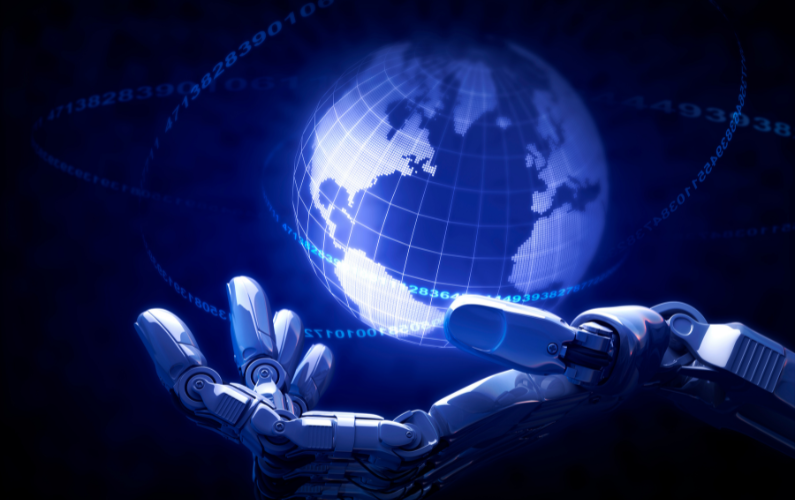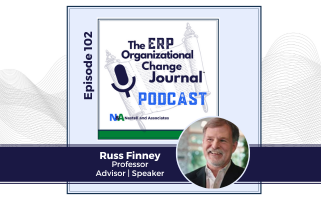Will Machines ever rule the world?
Article Contents
- How Far Could AI Go?
- Will Machines Ever Rule the World?
- How do We Proactively Regulate That Which is Not Fully Understood?
- AI Reality versus Myth: Where is the line?
- The Interview with Dr. Landgrebe
How Far Could AI Go?
In this article, I discuss and share Landgrebe, J., & Smith, B. (2022), “Why machines will never rule the world: artificial intelligence without fear.”
As we explore further (and much more in upcoming posts and podcasts), three things are certain:
- Significant Influence: AI will have a major impact on individuals and organizations.
- Mixed Evolution: The evolution of AI will bring both benefits and drawbacks, with the potential for significant challenges.
- Widespread Concern: As AI continues to develop, there is growing anxiety, fear, and concern about its implications.
Sure, AI will change our lives, no one is denying that. But, just how much of what we hear on the news and social media is true? Just how far can AI go? There are camps of AI “experts”, developers, and business entrepreneurs that are making enormous claims and sharing significant concerns about AI. And then, there appears to be a smaller camp that is quite optimistic but always draws the line with some of the futuristic sci-fi claims of where AI will go. The reason for drawing this line is that using machines, that are human-created, running on electrons, and consisting of bits and bytes, to create artificial intelligence comparable to that of humans (which are complex systems), made of cells and atoms, has constraints both today and in the future. “This is because the machine does not learn anything; it merely computes algorithms.” (Landgrebe & Smith, 2022, p. 167).
The goal of this article is to simply introduce ideas as shared by Landgrebe, J., & Smith, B. (2022). Additionally, for readers interested in learning more, this article contains the actual questions that will be explored further with Dr. Landgrebe and Dr. Smith in an upcoming podcast of the same name
Will Machines Ever Rule the World?
What is Landgrebe & Smith saying when they claim that machines will never rule the world? Is their work contrary to what citizens see on television, YouTube, social media, etc? If so, why? Are there economic motivations for such extraordinary AI claims (which we will discuss more in the next post)? If so, what would they be? That is, in a capitalist society, being first to market is a crucial competitive advantage that can result in incredible financial gains and rewards. Even though the AI end game is not entirely understood, is the path of the economics too high of a potential reward not to be in the game and stay in the lead? Is AI about the resources to get it first even though the ultimate outcome is not really understood? Moreover, if you watch any video or read any book from most leading experts, they will admit that the end game is in fact not known in terms of how far AI will go and the consequences that it will ultimately have on humanity.
How do We Proactively Regulate that Which is Not Fully Understood?
When it comes to AI, “The genie is out of the bottle” shares Danoela Amodei, Co-founder & President, Anthropic in “Anthropic Founders Share Roadmap to Advance AI”.
How can we begin to plan for and regulate something if we don’t know what to regulate for? Eric Schmidt (among other prominent roles, served as CEO of Google from 2001 to 2011) also describes how you “can’t regulate ahead of invention” (“AI and Quantum – What Leaders Need to Know. A Talk with Eric Schmidt and Jack Hidary”, https://www.youtube.com/watch?v=m-jxzY8KwJY&t=2098s). That leaves us in a serious situation when it comes to AI, especially if some of the current and exorbitant AI claims come to fruition. In the same video, Mr. Schmidt shares that “Polymaths could be talking about destroying you”. Mr. Schmidt is referring to AI-created polymaths as he describes how potentially everyone could have their own polymath in their pocket. A Polymath is “a person with extraordinarily broad and comprehensive knowledge” (The American Heritage® Dictionary of the English Language, 5th Edition). Additionally, Mustafa Suleyman (CEO of Microsoft AI) in a TED talks states that “They’ll have exceptional EQ”. EQ stands for emotional intelligence. Mr. Suleyman also described how AQ (answers quotient) will provide the ability for AI to get things done. (What Is an AI Anyway? | Mustafa Suleyman | TED, https://www.youtube.com/watch?v=KKNCiRWd_j0&t=1105s). Furthermore, while technological advancements have certainly provided societal advancements for humanity, it is not as if social media hasn’t done damage to our social fabric and younger generations. Jonathan Haidt and Eric Schmidt wrote an essay titled, “AI is about to make social media (much) more toxic”. Jonathan Haidt shares some of the evidence of what technology has done to our children in “The Anxious Generation with Jonathan Haidt with Tristan Harris and the Center for Humane Technology”.
The point is, to be proactive and to put mechanisms, policy, and regulation in place that will protect humanity and societies from the “bad” and “ugly”, the extent of the possibilities need to be clearly understood. Right? How can you possibly create a solution, or policy, or regulation, or simply be prepared for the AI future if you don’t understand the extent of the potentialities? Else, at best, advancements in AI will most likely be a reactive attempt to correct damage that has already been done.
AI Reality versus Myth in the Future of Artificial Intelligence: Where is the Line?
When it comes to Artificial Intelligence, there are all sorts of “pieces”*. One major component of AI is “transformers”. Graham Moorehead shares that “Transformers are interesting and seem powerful, but they do not learn like people do. Everything about how it learns is different. Transformers cogitate in the space of millions of continuous vectors while we cogitate on a handful of discrete concepts. Once a Transformer learns, the internal structure of its information is not at all like humans. The shape of its thoughts is different from the shape of human thought. One might say they are powerful. I say they’re horribly inefficient idiot savants, wasting megawatts of electricity and lacking true understanding” (Moorehead, G. (2023). The Shape of Thought. Journal of Computing Sciences in Colleges, 39(1), 10-10).
By now, most have heard of Large Language Models (LLMs). Graham also shares that “LLMs like GPT also have a context window, but it’s a lot longer than 20 words. As of 2023, a commonly-used version has a context window of 25k words. Within this context window, GPT seems to make sense. How? By stringing together words that go together well. It is the greatest auto-complete mankind has ever made, and it is nothing more than auto-complete. There is no coherent train of thought behind the text it generates.”
Furthermore, on page 26 of The Age of AI: And Our Human Future (Kissinger, H. A., Schmidt, E., & Huttenlocher, D. (2021), the authors explain that: “Although AI can draw conclusions, make predictions, and make decisions, it does not possess self-awareness—in other words, the ability to reflect on its role in the world. It does not have intention, motivation, morality, or emotion. Even without these attributes, it is likely to develop different and unintended means of achieving assigned objectives. But inevitably, it will change humans and the environments in which they live. When individuals grow up or train with it, they may be tempted, even subconsciously, to anthropomorphize it and treat it as a fellow being.” On page 27, they add, “This is a revolution for which existing philosophical concepts and societal institutions leave us largely unprepared.”
Gerd Leonhard provides his perspective, sharing that AI knows everything but understands nothing. There is no such thing as a thinking machine, he states. He explains that “Bot shit” is where “you can publish every 14 seconds.” Then he adds that “it is about speed, not depth.” He discusses how it should be Intelligence Assistance (IA) and not Artificial Intelligence (AI). “We are not going to lose our jobs, we are going to lose our routines” because AI will replace focused, narrow routines (Watch “Education, Work, Jobs: The Impact of Artificial Intelligence”).
So what is it? Will AI rule the world? Will AI become sentient? Will humans soon be at the mercy of a new AI god? Or is it that AI has constraints that will never be overcome and AI will just be another fairly narrow and limited tool at the disposal of humanity? Where is the line exactly? Does anyone know?
*The mentioned “Pieces” will be discussed further in upcoming posts and podcasts with prominent guests.
The Interview on the Future of Artificial Intelligence with Dr. Landgrebe and Dr. Smith
This article introduces key points from Why Machines Will Never Rule the World: Artificial Intelligence without Fear by Jobst Landgrebe and Barry Smith, in preparation for an upcoming episode of The ERP Organizational Change Journal podcast where Dr. Landgrebe and Dr. Smith will be interviewed. These points will be discussed in depth during the interview, which will also serve as the focal point for a series of additional articles related to the podcast conversation and thier book.
Please listen to the podcast to learn more. Here are just some of the ideas that we will cover:
- The definition of artificial intelligence: Is it consistent? Is it flawed? Are we thinking about AI wrong?
- What exactly are complex systems and what does it have to do with AI evolution?
- Are there any constraints in modeling complex systems? If so, what are they?
- Social Acts: “If human behavior, within social acts, is mainly guided by intentions. But intentions are guided by past decisions, emotions, and intellect of the human mind (as discussed on page 68 of Landgrebe, J., & Smith, B., 2022), if this is true, how can mathematical algorithms possibly be created that account for intentions, past decisions, emotions, and intellect all at the same time?
- Human Language: The book shares on page 74 that “Humans produce meaningful language and assign meaning to the language produced by others in a dynamic process…it is impossible to model mathematically either of these capabilities of the human mind in a way that is adequate in the sense that it is able to generate the sorts of predictions…needed to support machine emulation of human language use.” On page 217, their book explains that machines will not master human language. But isn’t language is a necessary condition for AGI? Are conversation machines doomed to fail? Well then, isn’t artificial general intelligence (AGI) an impossibility based on just this one point?
- Social and Ethical: On page 90 of their book, Landgrebe and Smith, state that “We will show in chapter 11 that we will never be able to engineer machines with the social and ethical capabilities of human beings”. The authors state that this in large part has to do with ‘perspective-taking’ and ‘intersubjectivity’”. Is this is the case, how could AI ever provide anything more than “narrow” functionality?
- AI Learning: “AI does not learn anything…This is because the machine does not learn anything; it merely computes algorithms taken from the theory of optimization (Bertsekas 2016; Goodfellow et al. 2016)” (Landgrebe and Smith, p 167). What is the theory of optimization?
- What is the No Free Lunch theorem and what does it have to do with AI?
We will have more to share and discuss on the above points. Please keep a look out for our podcast episodes and posts. And, certainly, don’t miss the interview with Dr. Landgrebe and Dr. Smith!
Dr. Jack G. Nestell
AI is Set to Transform Business Systems Significantly
For expert strategy and collaboration on leveraging AI to improve your business, consider partnering with Nestell & Associates. With a focus on IT & ERP organizational change within the private equity sector, we offer tailored solutions to maximize business value.
Discover how Nestell & Associates can help navigate the future of AI in business.
References
- Landgrebe, J., & Smith, B. (2022). Why Machines Will Never Rule the World: Artificial Intelligence without Fear.
- Moorehead, G. (2023). The Shape of Thought. Journal of Computing Sciences in Colleges, 39(1), 10-10. Available at: The Shape of Thought
- Kissinger, H. A., Schmidt, E., & Huttenlocher, D. (2021). The Age of AI: And Our Human Future. Hachette UK.
- Amodei, D. (Co-founder & President, Anthropic). Anthropic Founders Share Roadmap to Advance AI. Available at: YouTube Video
- Schmidt, E. AI and Quantum – What Leaders Need to Know. A Talk with Eric Schmidt and Jack Hidary. Available at: YouTube Video
- Suleyman, M. (CEO of Microsoft AI). What Is an AI Anyway? | Mustafa Suleyman | TED. Available at: TED Talk
- Haidt, J., & Schmidt, E. AI is about to make social media (much) more toxic. The Anxious Generation with Jonathan Haidt with Tristan Harris and the Center for Humane Technology. Available at: YouTube Video
- Leonhard, G. Education, Work, Jobs: The Impact of Artificial Intelligence. Available at: YouTube Video
Additional Links
Related Articles
- Artificial Intelligence Research: What Do 85 Peer-reviewed Articles Say about AI in Information Systems?
- Bias in Artificial Intelligence-Enabled ERP Software Customization: Say whaaat?!
- Machine Learning in ERP: Envisioning the Future of Business Performance
- Intelligent ERP Systems: Artificial Intelligence and Its Impact on ERP Organizational Change
Latest Podcast Episodes – “The ERP Organizational Change Journal”
Human Capital in PE-Backed Companies: Strategies for Leadership and Talent Management
Human Capital in PE-Backed Companies: Strategies for Leadership and Talent ManagementEpisode Overview - PE-backed Human Capital Strategies Today’s episode centers on the pivotal role of human capital in PE-backed companies, emphasizing how strategic leadership and...
ERP Organizational Change: Technology Strategy
ERP Organizational Change: Technology Strategy and Keys to SuccessEpisode Overview - Technology Strategy In general, at the highest level of categorization, there seems to be consensus on the importance of people and culture, informational technology, and project...
AI and Private Equity Synergy: Fueling Business Transformation
AI and Private Equity Synergy: Fueling Business TransformationEpisode Overview - AI in PE Strategies In this episode, we explore how AI and Private Equity synergies are fueling business transformations and reshaping investment strategies and operational efficiencies....




